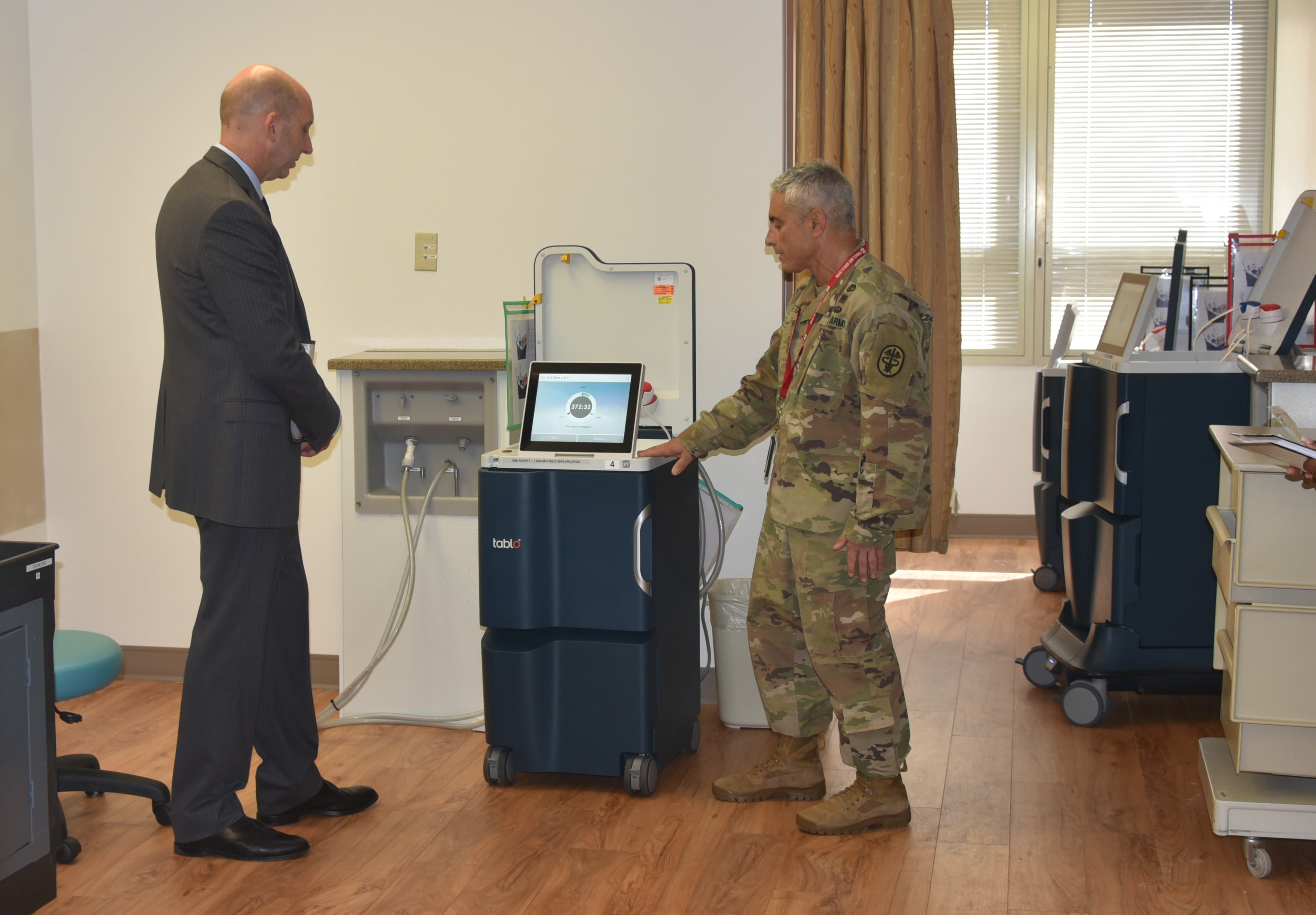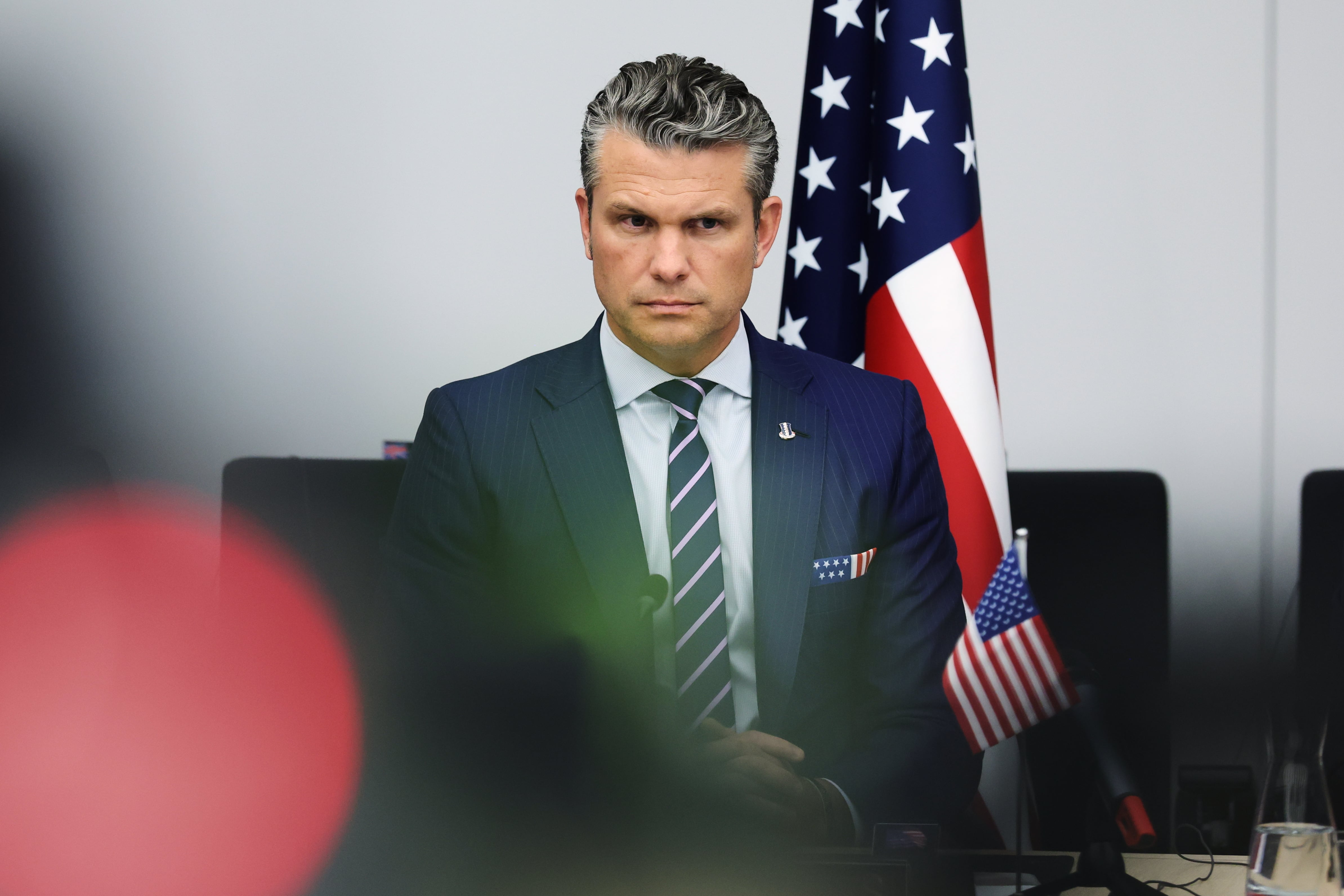Ahead of his confirmation hearing July 17 in Washington, Gen. Joseph Dunford provided the Senate Armed Services Committee with written responses to several policy questions designed to glean how he would lead the Marine Corps as its 36th commandant. An overview, edited for space and style:
Q. If confirmed, what priorities would you establish?
A. The first priority will be to provide Marines in harm's way with all that they need to fight and win. I will also continue to build on the superb foundation established by the current and former commandants in professional military education, junior leader development, wounded warrior programs, and family readiness. I will also prioritize the development and fielding of capabilities that will ensure that the Marine Corps remains a relevant naval expeditionary force-in-readiness.
Q. What role do you envision for the Marine Corps in homeland security and homeland defense?
A. The primary contribution of the Marine Corps is to protect the homeland by being forward deployed and forward engaged to shape the environment and respond to crises before the homeland is threatened. When directed by the president or secretary of Defense, the Marine Corps uses its active-duty and reserve forces to rapidly respond to natural disasters or other threats against the homeland.
Q. What is your assessment of the progress made in standing up and growing Marine Corps Forces Special Operations Command, and what principal issues would you have to address to improve its operations?
A. MARSOC has become a highly effective and fully integrated part of U.S. Special Operations Command ... Improving MARSOC will require emphasis on screening, training, personnel assignment policies, equipping and integration of MARSOC within the special operations community, Marine air-ground task force and other conventional forces.
Q. The Marine Corps has a primary military occupational specialty for enlisted Marines trained as special operators allowing these personnel to remain in MARSOC for their careers. Do you believe officers should have a similar opportunity?
A. I understand that the commandant and commander of SOCOM agree the current model of Marine officer assignment is not optimal. A joint Marine Corps-SOCOM assessment is in process to develop a more effective model. If confirmed, I will fully support that assessment and work with SOCOM to develop the most effective officer assignment policy.
Q. What steps should be taken to ensure that current operational requirements and tempo do not adversely impact overall readiness, recruiting and retention, and morale?
A. Effective recruiting will require that we continue to maintain a high quality and properly resourced recruiting force. I also believe sustaining an operational tempo of at least 1:2 [deployment to dwell time] will ensure our readiness, retention and morale remain high.
Q. As the Marine Corps has the highest percentage of service members who leave after their first term, what is your assessment of the adequacy of compensation and benefits for noncareer members?
A. By design, the Marine Corps is a young service and purposefully retains fewer service members at the first re-enlistment decision point than the other services. Today, we are meeting all of our recruiting and retention goals and the quality of the force is extraordinary. Based on that fact, I believe compensation and benefits for non-career service members is adequate.
Q. How important do you believe tuition assistance benefits are to Marines, and what trends do you see in the Corps' ability to pay for such programs?
A. Encouraging well-qualified Marines to utilize resources to better themselves via education and training is part of the Marine Corps ethos. This leads to better Marines and in turn better citizens. I understand that the Marine Corps is adequately funded to provide tuition assistance benefits to well-qualified Marines.
Q. DoD rescinded the policy restricting assignment of women to units with the primary mission of engaging in ground combat, and gave the services until 2016 to open all positions closed to women, or to request an exception to policy to keep a position closed. The Marine Corps continues to develop gender-free physical and mental standards for all military occupations. If confirmed, what role will you play in the development of these standards?
A. If confirmed, I will be decisively engaged in the development of gender-free standards for all military occupations to ensure that we continue to field the most capable Marine Corps possible.
Q. Do you believe decisions to open positions should be based on military requirements? If so, what steps would you take to ensure that such decisions are made on this basis?
A. Yes, and all recommendations to the secretary of the Navy, secretary of Defense and Congress will be made in that context.
Q. Morale, welfare and recreation programs must be relevant and attractive to all eligible users. What challenges do you foresee in sustaining and enhancing Marine Corps MWR programs, particularly in view of the current fiscal environment?
A. Our greatest challenges are the realities of sequestration. If confirmed, I will ensure we sustain priority programs that support the health, welfare and morale of our Marines and families. I will maintain a dialogue with our Marines and families to ensure that our MWR programs adapt to meet our highest priority needs.
Q. Reports of sexual assault in the Marine Corps increased by 86 percent between fiscal 2012 and 2013 to 808 ...What is your view about the role of the chain of command in changing the military culture in which these sexual assaults occur?
A. Commanding officers are responsible for setting and enforcing a command climate that is non-permissive to sexual assault, a climate in which the spirit and intent of the orders and regulations that govern the conduct of our duties will be upheld.
Q. In your view, what would be the impact of requiring a judge advocate outside the chain of command to determine whether allegations of sexual assault should be prosecuted?
A. Removal of commanders' convening and disposition authority will adversely affect good order, discipline and combat effectiveness. The commander is responsible for everything the unit does and fails to do. When a unit enters combat, success is dependent on the commander's ability to enforce orders and standards. The commander's authority to refer charges to court-martial, especially for the most serious offenses such as sexual assault, is essential. Judge advocates outside the chain of command do not share the commander's responsibility for the unit, and have different priorities when determining what action to take in a particular case.
Q. Do you support the Marine Corps' decision to develop a wheeled armored vehicle to replace the AAV-7, the current amphibious assault vehicle?
A. I support the decision to develop and field a wheeled armored vehicle as an interim step in modernizing our tactical ship to shore mobility.
Q. Where does armored amphibious assault fit in the set of capabilities required to field a credible amphibious operations capability?
A. The likelihood of operations in the littorals requires continued focus on the Marine Corps' responsibility to be organized, trained and equipped, for amphibious operations. I believe that armored amphibious assault capabilities are integral to our ability to come from the sea.





